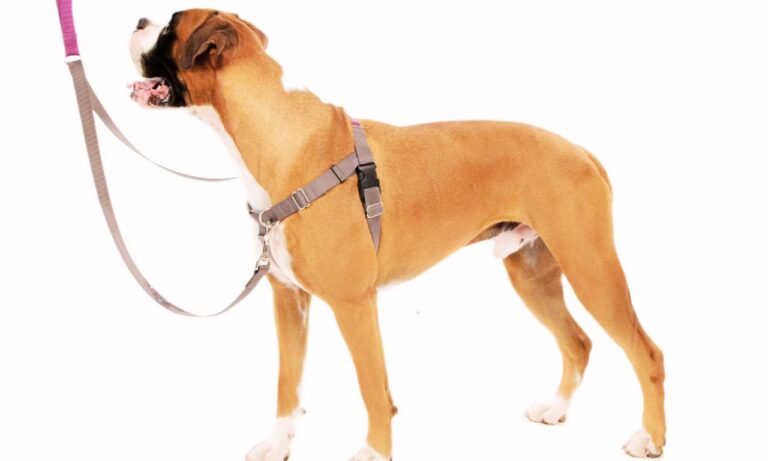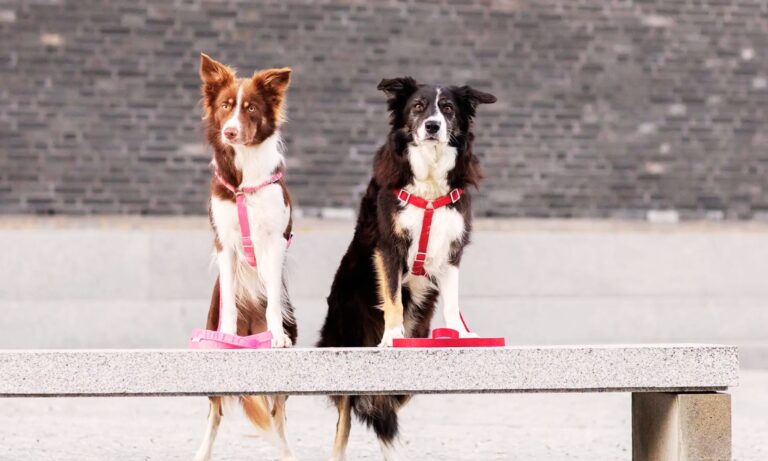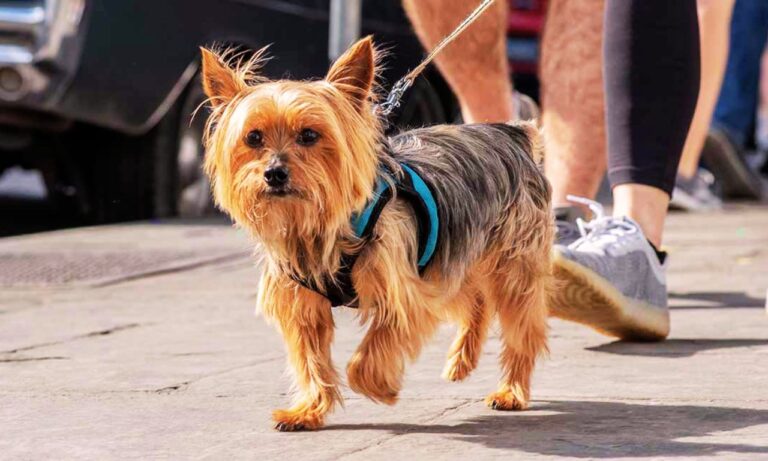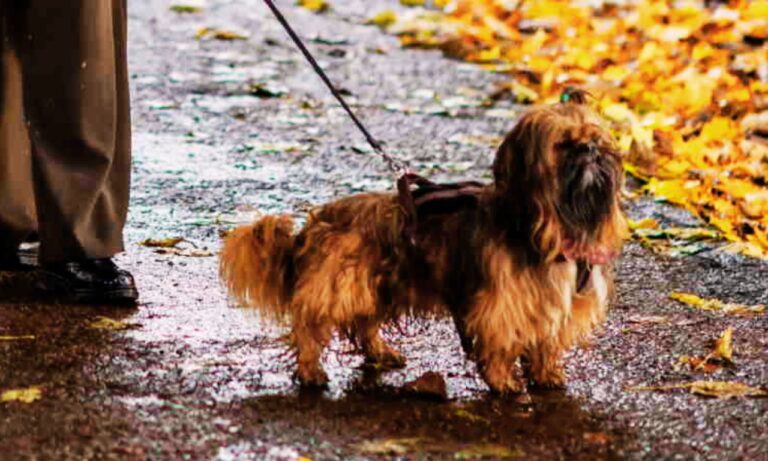Mountain dog breeds have long been admired for their strength, loyalty, and adaptability to harsh climates. Bred to work in rugged terrains and cold environments, they are typically large, hardy, and robust dogs that have been relied on for various tasks, including herding, guarding, and rescue operations. But beyond their work ethic, many people wonder whether mountain dogs make good family companions. So, Are mountain dogs good dogs?
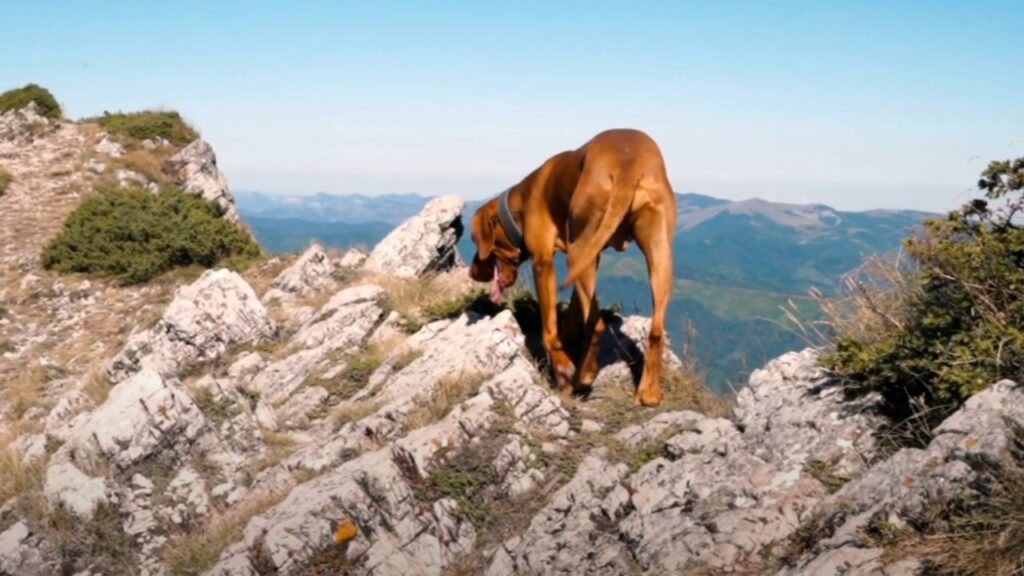
In this blog, we’ll explore the characteristics of popular mountain dog breeds, their temperament, training needs, and whether they are suitable for families or specific lifestyles. Discover the best collars for Siberian Huskies for both style and comfort.
Blog Highlights
ToggleWhat Are Mountain Dogs?
Mountain dogs are breeds that originated in high-altitude, cold regions, often used to guard livestock or pull carts in mountainous areas. These dogs tend to be large and muscular, with thick coats that protect them from extreme weather. Some well-known mountain dog breeds include the Bernese Mountain Dog, Saint Bernard, Great Pyrenees, and Tibetan Mastiff. For a guide on choosing the best collars for mountain dogs based on durability and comfort, check out this Best Dog Collars for Mountain Dogs.
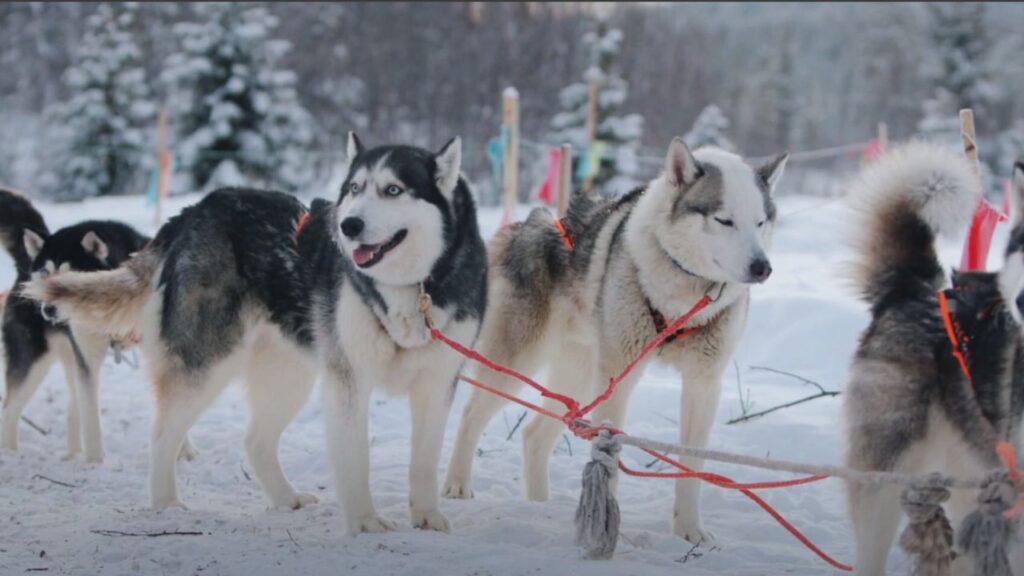
Quick Fix Table: Are Mountain Dogs Good Dogs?
Summary: Mountain dogs are loyal, protective, and great for active families with space. They need consistent training and care.
Key Characteristics of Mountain Dogs
- Size and Strength: Mountain dogs are generally large, with some breeds like the Saint Bernard and the Great Pyrenees reaching weights over 150 pounds. Their size and strength were bred for functionality — pulling carts, guarding livestock, and even participating in rescue missions in cold, snowy terrains. Despite their size, many mountain dogs are gentle and calm, especially within the family.
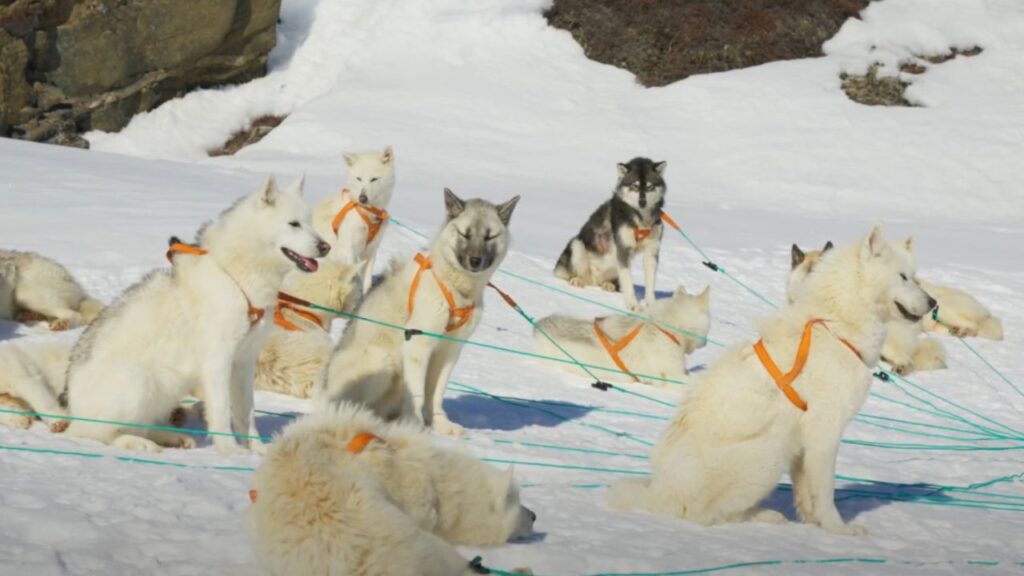
- Thick Coats: One of the most distinctive features of mountain dogs is their thick double coats. This coat keeps them warm in frigid environments and helps protect them from snow and moisture. Breeds like the Great Pyrenees and the Bernese Mountain Dog have dense, weather-resistant fur, making them particularly suited for outdoor life.
- Work Ethic and Independence: Most mountain dogs were bred to be independent workers. For instance, the Bernese Mountain Dog was used for farm work, including pulling carts and guarding cattle, while the Anatolian Shepherd and Tibetan Mastiff are known for their strong protective instincts. This independent nature can make them more challenging to train, especially for first-time dog owners. Consistent, positive reinforcement training is essential. If you’re looking for information on selecting the right collar size for a Bernese Mountain Dog, visit What Size Collar for Bernese Mountain Dog for detailed advice.
Are Mountain Dogs Good Dogs?
So, are mountain dogs good dogs? While mountain dogs are known for their working abilities, many of them also make excellent family companions. Here’s a breakdown of some popular mountain breeds and their suitability as family pets. Learn how to put a collar on a Husky with these practical tips.
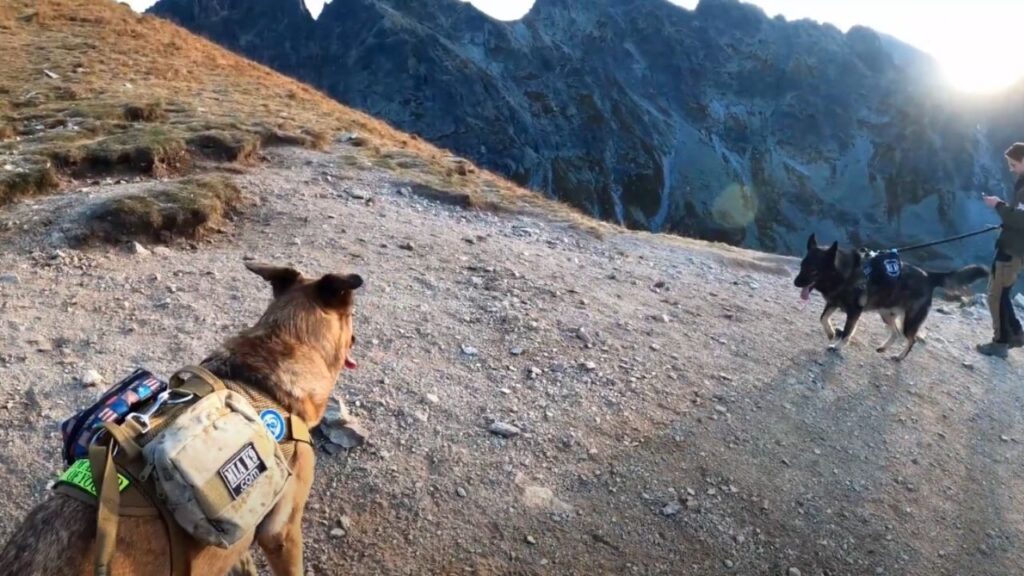
- Bernese Mountain Dog: The Bernese Mountain Dog is a great family pet for those with space to accommodate its size. Berners are known for being affectionate, gentle, and great with children. Their calm demeanor makes them good house pets, but they need ample outdoor space and moderate exercise to stay happy and healthy. They are also quite social and enjoy being part of the family, thriving in environments where they are not left alone for long periods.
- Saint Bernard: Saint Bernards, famous for their role in mountain rescue missions, are incredibly loyal and gentle giants. Despite their massive size, they are known for being affectionate and protective toward family members, especially children. Saint Bernards require moderate exercise and thrive in homes with large yards. However, their tendency to drool and shed makes them less ideal for people sensitive to messes.
- Great Pyrenees: The Great Pyrenees is another excellent family dog, especially for families that live in rural or suburban areas with plenty of space. Known for their calm and patient nature, they are affectionate with family members but maintain a protective instinct, making them great watchdogs. These dogs can be independent thinkers and might not always follow commands immediately, so early training and socialization are important.
- Tibetan Mastiff: The Tibetan Mastiff is a more challenging breed when it comes to family life. While they are incredibly loyal and protective, they are also highly independent and aloof with strangers. This breed needs a strong, experienced handler and plenty of space to roam. Tibetan Mastiffs are best suited to families with experience handling large, independent dogs and those who can provide proper training and socialization.
Training and Socialization Needs
Training is essential for mountain dogs due to their size and strength. An untrained mountain dog can be difficult to control, and with their natural protective instincts, proper socialization is key to ensure they are well-behaved around people and other animals.
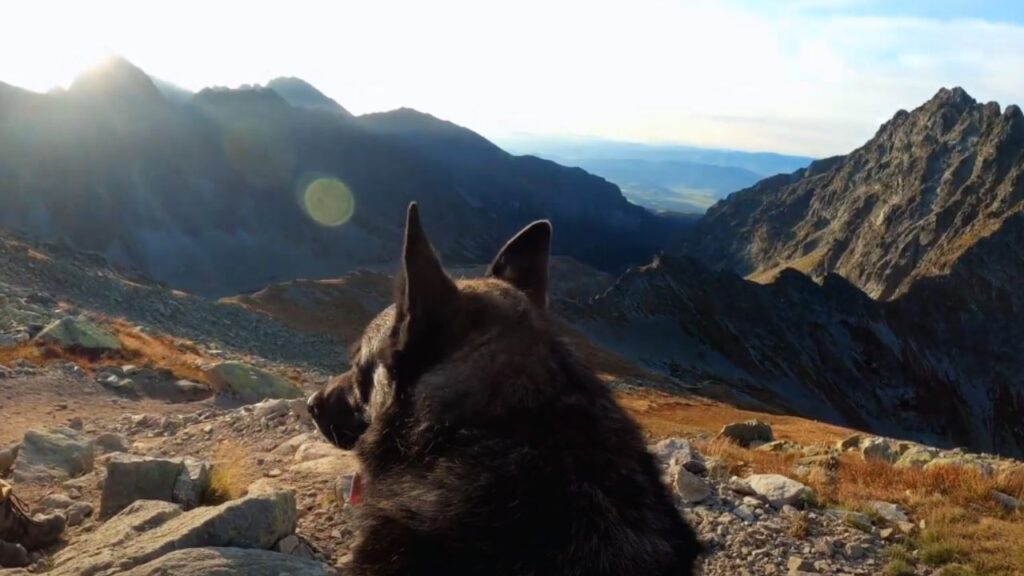
- Early Socialization: Mountain dogs, especially breeds like the Anatolian Shepherd and Tibetan Mastiff, require early socialization. Exposure to different environments, people, and other animals will help curb their natural wariness and ensure they grow up to be well-adjusted adults.
- Positive Reinforcement: Mountain dogs respond well to positive reinforcement training methods. Using treats, praise, and toys to reward good behavior is effective, as these dogs are intelligent and eager to please. However, consistency is crucial, as their independent nature can sometimes lead to stubbornness.
- Exercise Requirements: Most mountain dogs have moderate to high exercise needs. While they don’t require intense daily activity, they do need regular walks and some off-leash playtime in a secure area. For example, the Great Pyrenees and Saint Bernard need space to roam but don’t require as much vigorous exercise as a Border Collie might. However, breeds like the Appenzeller Sennenhund are highly energetic and need more activity to remain happy.
Health Considerations
Mountain dogs, like other large breeds, tend to have a shorter lifespan, with many averaging between 7 to 12 years. Common health issues in mountain dogs include hip and elbow dysplasia, bloat (gastric torsion), and certain cancers. Regular veterinary check-ups, a healthy diet, and maintaining a proper exercise routine are crucial to extending their lifespan and ensuring a good quality of life.
Grooming and Care Needs of Mountain Dogs
Mountain dogs are known for their dense, thick coats that protect them from cold, harsh weather. However, their beautiful fur comes with its own set of challenges when it comes to grooming and care. Regular maintenance is essential to keep their coats healthy and free of mats, and proper grooming also plays a role in preventing skin issues and keeping them comfortable. Find out the best collars for Cane Corsos to suit their unique needs.
1. Coat Maintenance
Mountain dog breeds, such as the Bernese Mountain Dog, Saint Bernard, and Great Pyrenees, typically have a thick double coat. This type of coat consists of a soft, insulating undercoat and a coarser outer coat that provides protection from moisture, snow, and cold temperatures. While these coats serve their purpose in extreme climates, they require regular grooming to avoid becoming tangled and matted.
For breeds like the Saint Bernard and Great Pyrenees, brushing two to three times a week is recommended to prevent mats from forming. During shedding season, which typically happens twice a year (spring and fall), daily brushing is necessary to remove the excess undercoat.
Tools such as slicker brushes, deshedding combs, and undercoat rakes can help manage heavy shedding. Not only does regular brushing keep their coats free of debris, but it also distributes natural oils, keeping the skin healthy and the fur shiny.
2. Bathing
Bathing mountain dogs should be done every 6 to 8 weeks or as needed, depending on how dirty they get. Over-bathing can strip the natural oils from their skin, leading to dryness or irritation, so it’s important to balance cleanliness with the dog’s natural grooming needs. Special attention should be given to ensuring their thick coats are fully dried after baths to avoid skin infections that can occur when moisture gets trapped under the dense fur.
3. Nail Trimming and Paw Care
Due to their large size and high activity level, mountain dogs’ nails can wear down naturally, but regular trimming is still necessary. Nail trims should be performed every 3 to 4 weeks to prevent overgrowth, which can cause discomfort or affect their gait. It’s important to use strong, high-quality nail clippers due to the thickness of their nails.
Additionally, paw care is crucial, especially for breeds like the Newfoundland, which may engage in water activities. Inspecting their paws regularly for cuts, cracks, or irritation and keeping the fur between their paw pads trimmed can help prevent issues related to walking in rough or cold terrains. Explore the Cane Corso growth and weight chart and nutrition plans.
4. Ear Cleaning and Dental Hygiene
Mountain dogs, particularly those with droopy ears like the Saint Bernard, are prone to ear infections. Regular ear cleaning with vet-recommended ear cleaner can help prevent wax buildup, moisture, and bacterial growth. Keeping the ears dry is especially important if your dog enjoys swimming or spending time in wet conditions.
Dental care is equally important, as large breeds are prone to tartar buildup and gum disease. Regular brushing with dog-safe toothpaste and providing dental chews can help maintain good oral health and prevent issues such as bad breath, tooth loss, or infections.
5. Exercise and Mental Stimulation
Mountain dogs are typically large, powerful breeds that were bred to perform physical tasks, such as pulling carts, guarding livestock, or performing rescue operations. While their energy levels vary depending on the breed, most mountain dogs require moderate to high levels of exercise. For example, the Bernese Mountain Dog and Great Pyrenees may only need about 30 to 60 minutes of daily exercise.
However, breeds like the Appenzeller Sennenhund and the Entlebucher Mountain Dog have much higher energy levels and may require more intense physical activity and mental stimulation.
Conclusion: Are Mountain Dogs Right for You?
Mountain dogs can make fantastic companions for the right family. Their loyalty, protective instincts, and calm demeanor make them ideal for families with children or those who need a dependable watchdog. However, these breeds do come with challenges, including their size, exercise needs, and grooming requirements. Hope so, now you know are mountain dogs good dogs.
If you have the space, time, and dedication to train and socialize a mountain dog, they can be a rewarding addition to your family. Breeds like the Bernese Mountain Dog and Great Pyrenees are gentle and patient, while others like the Tibetan Mastiff and Anatolian Shepherd require a more experienced handler. Consider your lifestyle, living conditions, and ability to meet their needs before bringing a mountain dog into your home.


